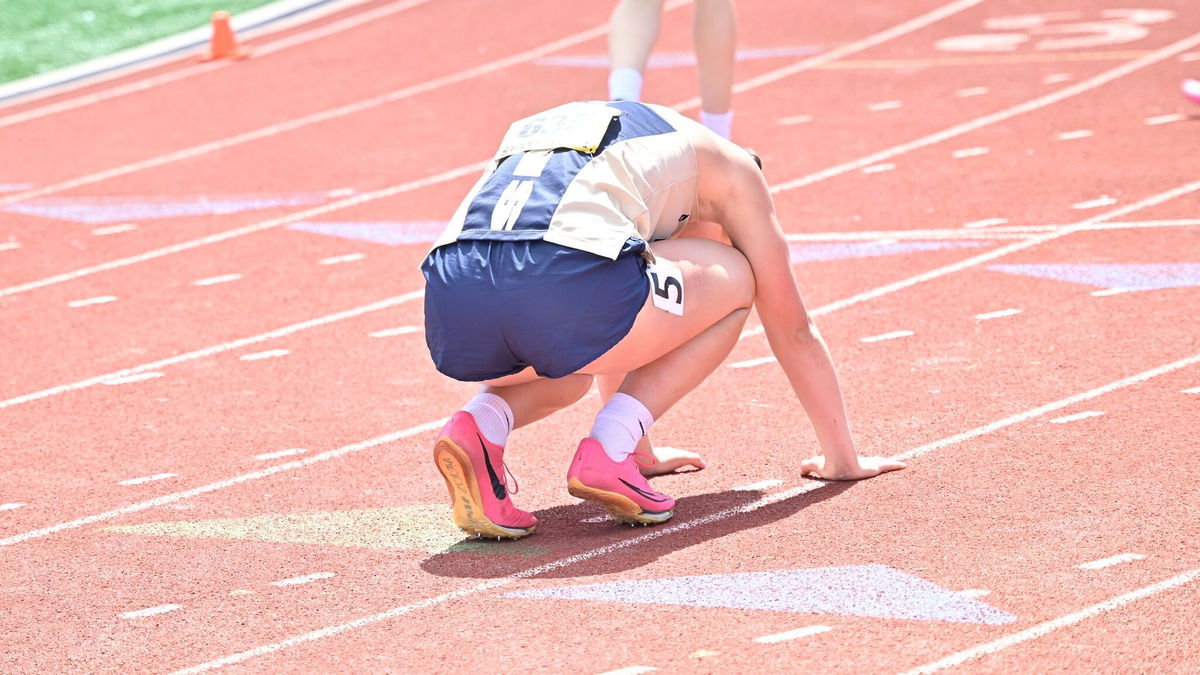
Imago

Imago
Teenage sprinters have been chipping away at the limits of human speed, but what unfolded recently in Hiroshima felt like something out of fiction. A 16-year-old Japanese high school student, not yet old enough to vote, has produced a performance so extraordinary that fans, coaches, and former stars are struggling to process what they witnessed. In the final of the national high school championships, Sorato Shimizu, a name virtually unknown outside of domestic circles until now, stopped the clock at an even 10.00 seconds in the 100 meters, breaking the under-18 world record and catapulting himself into the upper echelons of global sprinting conversations.
Watch What’s Trending Now!
Japan has often relied on the sum of its parts when it comes to sprinting. The country’s relay teams have consistently impressed on the Olympic stage, collecting medals and breaking national records with remarkable coordination. But the search for an individual male sprinting icon has proven elusive. Many once believed Abdul Hakim Sani Brown would be the one to carry that banner. Born to a Japanese mother and Ghanaian father, Brown claimed double gold at the 2015 World U18 Championships and later made history as the first Japanese man to reach the 100m final at a senior World Championship. Yet, at 26, his progression has somewhat stalled. Though he recently clocked 9.96 seconds during the semifinals at the Paris Olympics, that time was not enough to secure a spot in the final.
ADVERTISEMENT
It is within this context that Shimizu’s performance reverberates with such force. The teenager from Seiryo High School in Ishikawa Prefecture had already made noise earlier in the month by running 10.19 seconds during the Japanese National Championships. He narrowly missed the final there with a follow-up time of 10.25. That showing alone had marked him as a rising talent. However, what he accomplished in Hiroshima has redefined expectations. Racing with a legal tailwind of 1.7 m/s, Shimizu not only obliterated the U18 world record but also equaled the fifth-fastest time ever recorded by a Japanese sprinter of any age. He also broke the longstanding high school national record of 10.01, set in 2013 by future Olympic silver medalist Yoshihide Kiryu.
“I was determined to run under 10 seconds heading into the final,” Shimizu said, speaking with the unshaken focus of someone twice his age. “I’m happy to have set a high school record. I’d like to get a taste of [the world stage] if I can make it.” His time now meets the entry standard for the World Championships set to take place in Tokyo this September, a remarkable opportunity for an athlete still navigating adolescence.
ADVERTISEMENT
10.00s at the age of 16!!!!!🤯🤯🔥🔥
Sorato Shimizu 🇯🇵 storms runs a massive Age-16 World Record of 10.00s (1.7) over 100m at the Inter High School Championships in Japan!
He broke the previous age-group record of 10.09s by 🇹🇭 Puripol Boonson.pic.twitter.com/NOdWPbQOqQ
— Track & Field Gazette (@TrackGazette) July 26, 2025
Shimizu’s emergence is not merely a matter of timing and speed. It is a jolt to the sporting identity of a nation that has long desired a solo sprinting force to rival the world’s best. His record-breaking run at just 16 does more than shatter the stopwatch. It opens a new chapter in Japan’s sprinting story, one with a central character whose journey has only just begun.
ADVERTISEMENT
Fans flock to share two cents on Sorato Shimzu’s impeccable timing at 16
Sorato Shimizu’s 10.00s dash has fans reeling, with one calling it “Absolutely unbelievable.” Given that no 16-year-old has ever run this fast before, it’s a logical reaction to a historic under-18 world record. His run not only beat the high school national mark but also matched the fifth-fastest time by any Japanese sprinter ever, validating the claim that he’s “a future star in the making.”
ADVERTISEMENT
Skepticism wasn’t far behind awe. One user said, “Yeah injuries are guaranteed if you getting 16 year old damn near running 9.9.” It’s a valid concern, Shimizu’s body is still developing, and the intensity required to clock 10.00s could bring physical tolls if not managed wisely. This sentiment reflects fears that early peak performances might come at the cost of long-term sustainability.
The warning in “Running fast young does help these kids. Boonson hasn’t improved since he was a kid” stems from history. Thai sprinter Puripol Boonson once dazzled as a teen but hasn’t progressed significantly at the senior level. Sorato Shimizu’s leap from 10.25s to 10.00s within weeks mirrors Boonson’s early promise, sparking anxiety that rapid teenage success might not guarantee future growth.
ADVERTISEMENT
Doubts took a darker turn with “Doped to the fu—– gills. Just absurd.” Shimizu’s seismic improvement in such a short span, a 0.19s drop in a month, feeds cynicism in some corners. While there’s no evidence of foul play, the comment reflects how outlier performances often stir suspicion, especially in a sport historically tainted by doping controversies.
One dismissed the achievement bluntly: “Asians can’t take this form into senior level.” This cynical view draws on Japan’s history of producing top relay squads rather than individual stars. With Sani Brown’s stalled momentum serving as a cautionary tale, critics doubt whether Shimizu’s breakout speed can translate to consistent elite performances at the world level.
ADVERTISEMENT
ADVERTISEMENT
ADVERTISEMENT
ADVERTISEMENT